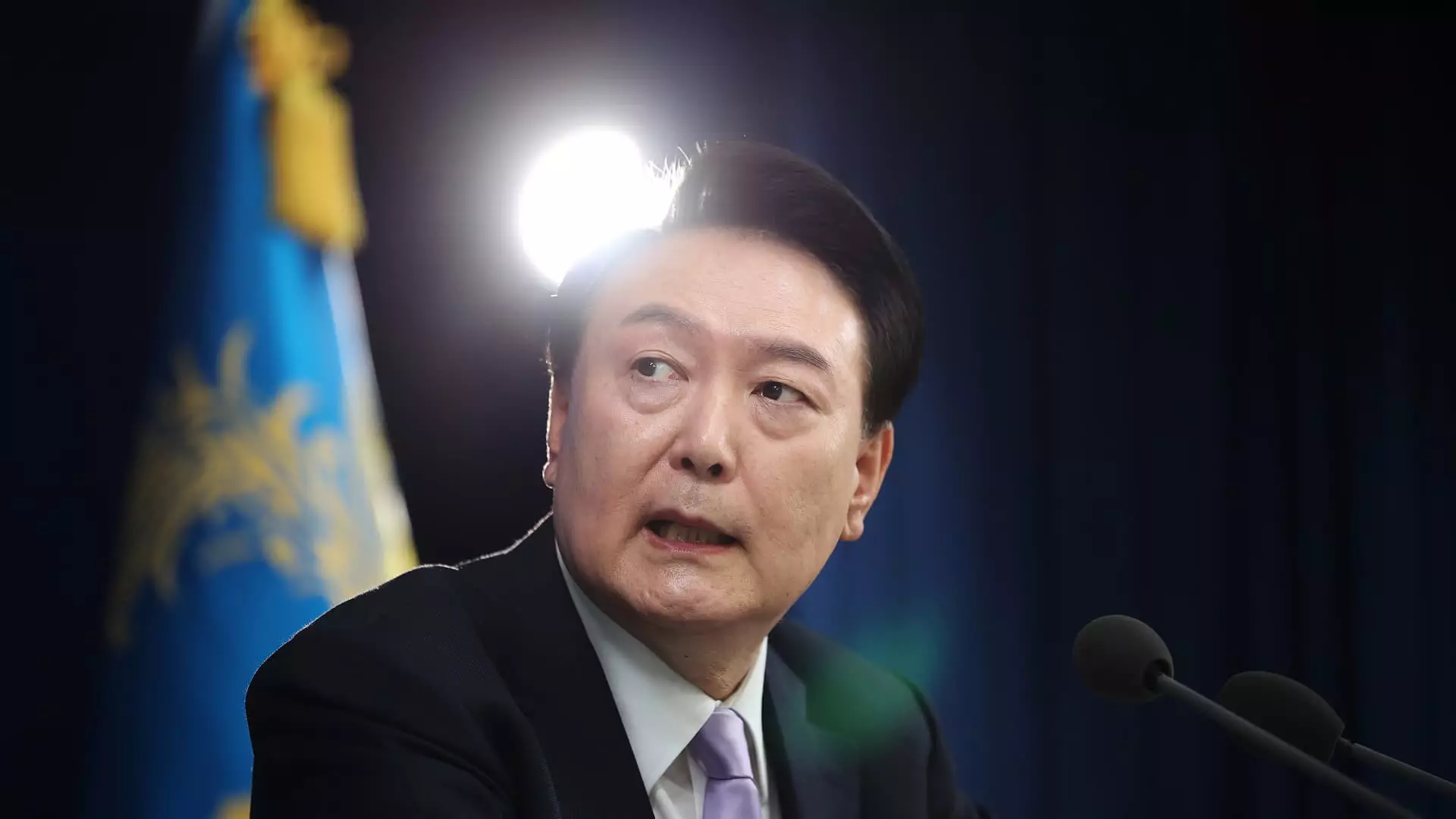In a dramatic turn of events, South Korean President Yoon Suk Yeol narrowly avoided impeachment this past weekend, after an opposition-led attempt to remove him from office fell flat. The timing of this political maneuver was particularly significant, as it followed Yoon’s controversial proposal to impose martial law—an action unprecedented since the military dictatorship era of the late 20th century. The motion, ignited by the ruling party’s unexpected boycott, needed a two-thirds majority in the National Assembly to succeed. However, the ruling People Power Party’s coordinated withdrawal effectively hindered the necessary quorum, resulting in the defeat of the impeachment effort.
The opposition, primarily comprised of the Democratic Party, expressed its intention to revisit the impeachment strategy—implying that the situation remains fluid and volatile. Had the motion succeeded, it would have stripped Yoon of all presidential powers immediately, triggering a new election within 60 days, a prospect that rattles the core of South Korea’s political framework.
This recent political crisis is not South Korea’s first brush with impeachment. Historically speaking, the nation has seen two presidents dismissed since the early 2000s: Roh Moo-hyun in 2004 and Park Geun-hye in 2016. This background serves as a sobering reminder of the country’s turbulent political landscape. As a relatively young democracy, South Korea has been forced to grapple with the challenges associated with both a rigid military legacy and the oft-chaotic nature of Supreme power politics.
Yoon, who won a tightly contested presidential race in 2022, saw his approval ratings plummet to an alarming low of 19% in the wake of his martial law announcement. He claimed it was a necessary step to protect constitutional freedoms and eradicate what he termed as anti-state groups fomenting unrest and discontent among the populace. Such rhetoric raises questions about his understanding of democratic norms, casting a long shadow over his leadership.
Market Repercussions and Economic Implications
Political instability in South Korea reverberated beyond the confines of government corridors, affecting financial markets as well. Investors reacted sharply to the uncertainty surrounding Yoon’s presidency, prompting the Financial Services Commission to signal readiness to inject a staggering 50 trillion won (approximately $35.22 billion) into the markets to stabilize them in response to volatility. This potential bailout for the economy underscores the interconnectedness of political decisions and economic health in a nation like South Korea, where the markets react acutely to perceived governance threats.
Adarsh Sinha, a prominent analyst at BofA Securities, reiterated concerns regarding the South Korean won. He noted that while political instability is a key factor in market fluctuations, fundamental economic conditions—such as anticipated interest rate cuts by the Bank of Korea—also paint a bearish outlook for the currency. Such insights indicate that the economic ramifications of Yoon’s governance are just as pressing as the political implications.
In the aftermath of the recent events, public sentiment seems increasingly skeptical. As Yoon made his first public appearance following the martial law debacle, he extended an apology, acknowledging the confusion and alarm his actions caused among the populace. While many citizens might appreciate such humility, the mere fact that a sitting president contemplates martial law to address governance challenges raises red flags about the state of democracy in South Korea.
Meanwhile, international observers are watching closely, their concerns heightened by echoes of the country’s tumultuous military past. The indefinite suspension of the martial law measure serves as a temporary reprieve, but whether it signals a firm return to democratic norms remains uncertain. The government’s perils could plunge South Korea’s standing as one of Asia’s leading democracies back into question.
The events surrounding Yoon Suk Yeol’s presidency underscore the fragility of political stability in South Korea. As impeachment motions loom and economic markets quake, the interplay of political strategy and governance will continue to shape the nation’s future. The dialogues he sparks and the decisions he makes will undoubtedly determine not just his presidency, but also the legacy of democracy in South Korea.


Leave a Reply